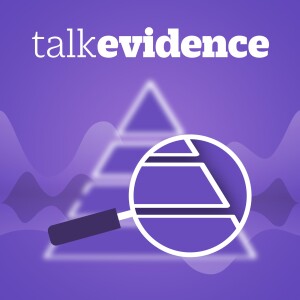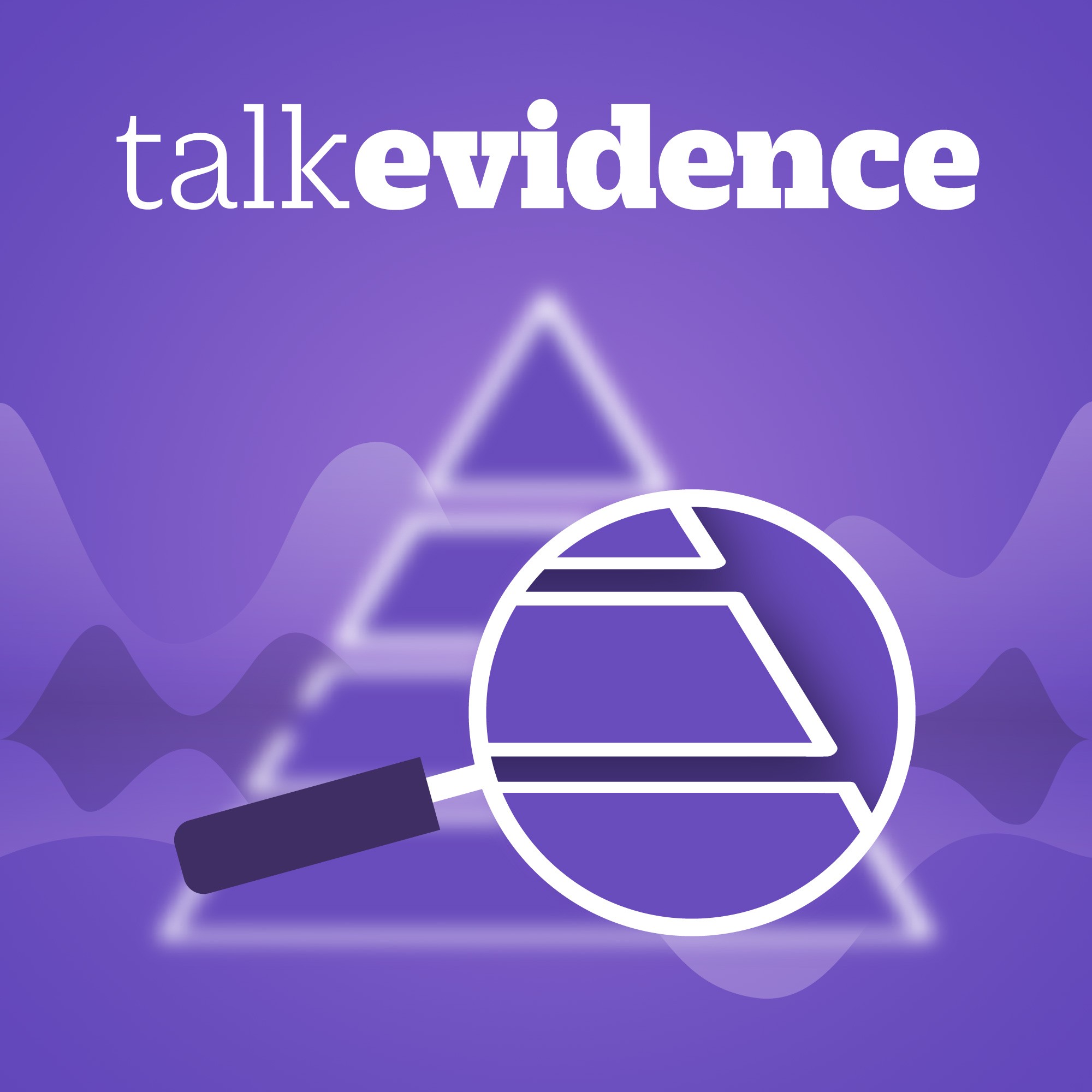Episodes

Saturday Aug 15, 2020
Talk evidence covid-19 update - Living meta-analysis and covid uncertainty
Saturday Aug 15, 2020
Saturday Aug 15, 2020
1.00) Carl has been looking at PCR testing, and explains why it picks up both viable SARS-cov-2, but also fragments of it’s RNA - leading to potential over diagnosis. (8.50 ) What did the Living systematic review and accompanying guidelines say about treatment options for covid-19 (14.35) Helen talks to Reed Siemieniuk, general internist from McMaster University, about creating a living network meta-analysis, to try and synthesis all the evidence on covid-19 (22.48) Helen also talks to Bram Rochwerg, associate professor at McMaster University and consultant intensivist at Hamilton Health Sciences, about turning the outcomes of a meta-analysis into guidelines, and why at the moment they’re still calling for more evidence on Remdesivir (30.08) Finally, there are worries about the uncertainty expressed in the living review - and in the way in which we communicate that. Helen goes back to Reed to find out how the review might evolve in the future. (33.50) Covid isn’t just an acute disease, there is emerging consensus that it’s systemic effects lead to long term problems for some patients - but there’s a lot of uncertainty there. (38.40) Carl talks about the IMMDS review and his involvement in it - and what recommendations we’ll be covering in future Talk Evidence programmes. Reading list: Drug treatments for covid-19: living systematic review and network meta-analysis -https://www.bmj.com/content/370/bmj.m2980 Remdesivir for severe covid-19: a clinical practice guideline - https://www.bmj.com/content/370/bmj.m2924
Management of post-acute covid-19 in primary care - https://www.bmj.com/content/370/bmj.m3026

Friday Jul 31, 2020
Friday Jul 31, 2020
Fresh outbreaks of covid in Europe and a wave of infections in the United States have been in the news this week, highlighting the renewed need for social distancing – but to what extent? In this edition, we explore the real-world evidence for physical distancing measures as well as the research into whether or not facemasks make us behave more recklessly.
We also discuss the non-covid themes of research transparency and a BMJ investigation into the lucrative business of orphan drugs.

Friday Jul 17, 2020
Talk Evidence covid-19 update - How will we know if a vaccine works?
Friday Jul 17, 2020
Friday Jul 17, 2020
Vaccines have been in the news this week - but when you dig into the stories, it turns out that the hype is about phase 1 trials. We're a long way from being sure any of the 150 possible vaccines being developed actually work. In this talk evidence we're talking to a researcher, a regulator, and a manufacturer about the way in covid-19 is upending normal vaccine development, which hurdles they'll have to reach to get onto the market, and how we'll know which one to choose when they are there. This week (1.10) We said that covid would have a knock-on effect on other treatments, and Helen looks at some research into acute coronary syndrome admissions in the UK. (6.53) Peter Doshi, assistant professor of pharmaceutical health services research at the University of Maryland School of Pharmacy and an editor for The BMJ, tells us what to watch out for in the PICO for a vaccine study. (15.20) Marco Cavaleri, head of Biological Health Threats and Vaccines Strategy at the European Medicines Agency, explains what regulators are looking for when thinking about licencing a vaccine - and how covid has made different agencies around the world align their requirements. (22.22) Philip Cruz, UK head of vaccines at GSK, explains how a manufacturer tests their vaccines, and how they use adaptive study design to past regulatory hurdles and provide information for those choosing which vaccine to use. Reading list Lancet paper - COVID-19 pandemic and admission rates for and management of acute coronary syndromes in England https://www.thelancet.com/journals/lancet/article/PIIS0140-6736(20)31356-8/fulltext ONS Data - Deaths registered weekly in England and Wales, provisional: week ending 3 July 2020 https://www.ons.gov.uk/peoplepopulationandcommunity/birthsdeathsandmarriages/deaths/bulletins/deathsregisteredweeklyinenglandandwalesprovisional/latest The BMJ editorial - Vaccines, convalescent plasma, and monoclonal antibodies for covid-19 https://www.bmj.com/content/370/bmj.m2722 WHO report - Draft landscape of COVID-19 candidate vaccines https://www.who.int/publications/m/item/draft-landscape-of-covid-19-candidate-vaccines Research Methods & Reporting The Adaptive designs CONSORT Extension (ACE) statement: a checklist with explanation and elaboration guideline for reporting randomised trials that use an adaptive design
https://www.bmj.com/content/369/bmj.m115

Friday Jul 03, 2020
Friday Jul 03, 2020
In this week's Talk Evidence we're hearing about how the death rate has dropped below average, disappointment about HIV drugs for covid-19 treatment, a trial to reduce polypharmacy, and why academic promotions matter to everyone else. 1.35 - Carl gives us one of his death updates 3.30 - Helen asks if it’s finally time to be able to do the international comparisons we’ve been waiting for? 16.10 - New research suggests that extreme PPE prevents transmission - but PPE came with a whole range of other viral suppression measures, and they all work together. 21.30 - The Recovery trial has said that lopinavir-ritonavir isn’t effective against covid - enough for them to stop the arm of that trial. We talk about this and more treatment evidence. 24.00 - Can a digital intervention reduce poly pharmacy? A new trial on bmj.com says no, but we talk about the composite endpoint and the way the trial is powered.
36.25 - Why academic promotion matters to non academics

Thursday Jun 25, 2020
Talk Evidence covid-19 update - dexamethosone, testing, rehabilitation after covid.
Thursday Jun 25, 2020
Thursday Jun 25, 2020
This week we're looking beyond the press release for dexamethasone, the long awaited review of antibody testing, and how well people are recovering after surviving acute covid-19. (2.36) The preprint for dexamethasone is finally out - considerably after the press release. Carl digs into it to find out how good the news actually is. (8.49) There are a couple of newly published systematic reviews on antibody testing, so we return to our testing guru Jon Deeks - professor of biostatistics at the University of Birmingham to give us an update. (23.52)Covid-19, it became apparent as the pandemic grew, was more than a respiratory disease - there are systemic effects on almost all organs. As people are recovering from the worst ravages of the disease, the long term consequences of those effects are becoming more clear - Lynne Turner-Stokes, professor of rehabilitation medicine at King's College London. Reading list; Effect of Dexamethasone in Hospitalized Patients with COVID-19: Preliminary Report https://www.medrxiv.org/content/10.1101/2020.06.22.20137273v1 Cochrane review of antibody tests for covid-19 DOI: 10.1002/14651858.CD013652 British society of rehabilitation medicine guidelines for rehab after covid-19.
https://www.bsrm.org.uk/downloads/covid-19bsrmissue1-published-27-4-2020.pdf

Friday Jun 12, 2020
Talk Evidence covid-19 update - surgisphere data, and protests in a pandemic
Friday Jun 12, 2020
Friday Jun 12, 2020
This week, we’re asking questions about surgisphere data, and how it might have got into such high impact journals, we’re also talking about the protests around the world about structural racism - and how they intersect with the covid pandemic. (1.39) Helen and Carl talk about the data underlying the newly retracted papers on hydroxychloroquine and ace-inhibitors or ARBs and covid. (7.45) Fiona Godlee, the BMJ’s editor in chief, comes onto the pod to talk about retractions, and why they’re often called for, an rarely done. (25.10) We talk about the protests, and Carl gives us his opinion on the risk of covid transmission during them (spoiler; he thinks it’s low) (37.40) Sonia Saxena, professor of primary care at Imperial College London gives her verdict on the Public Health England report into this disproportionate effect of covid on ethnic minorities in the UK, and pushes back against it being a biological instead of a sociological determination. Reading list: Sonia’s analysis into transforming the health system for the UK’s multiethnic population https://www.bmj.com/content/368/bmj.m268 News Analysis - Covid-19: PHE review has failed ethnic minorities, leaders tell BMJ https://www.bmj.com/content/369/bmj.m2264 The PHE report into the disparate risk of covid to ethnic minorities
https://www.gov.uk/government/publications/covid-19-review-of-disparities-in-risks-and-outcomes

Monday Jun 08, 2020
Talk evidence covid-19 update - second wave and care home failings
Monday Jun 08, 2020
Monday Jun 08, 2020
In this episode of Talk Evidence, we'll be finding out if second waves are inevitable (or even a thing), how the UK's failure to protect it's care homes is symbolic of a neglected part of public life, and why those papers on hydroxychloroquine were retracted. This is Talk Evidence - the podcast for evidence based medicine, where research, guidance and practice are debated and demystified. Helen Macdonald, UK research editor for The BMJ, and Carl Heneghan, professor of EBM at the University of Oxford and editor of BMJ EBM, talk about some of the latest developments in the world of evidence, and what they mean. This week: 2.00 - Helen looking into a second wave - and finds out from Tom Jefferson, an epidemiologist with the Cochrane Collaboration's acute respiratory infections group, that a "wave" might be a misnomer. 12.00 - Mary Daly, professor of sociology and social policy at the University of Oxford, tells us where the UK went wrong with care homes, and what we’d need to do to stop it happening again. 31.20 - Carl and Helen discuss those hydroxy chloroquine papers, now retracted. This was recorded before that happened, but we decided to keep this section in, because they talk about the reasons the papers should be viewed with caution, and the importance of scrutiny of the data. Reading list: The talk from Mary Daly at Green Templeton College.
https://www.gtc.ox.ac.uk/news-and-events/event/covid-19-and-care-homes-what-went-wrong-and-why/

Wednesday Jun 03, 2020
Talk evidence covid-19 update - remdesivir redux, the overwhelming volume of research
Wednesday Jun 03, 2020
Wednesday Jun 03, 2020
That remdesivir study has finally been published - what does it say and is it as independant as claimed. Also, as the world's focus turned to covid, so have researchers - and they've produced over 15000 papers. How can we sift through the flood of research and know what's any good? (2.30) Helen Macdonald talks to Elizabeth Loder about the volume of research we're seeing, and why journals and peer reviewers are struggling to check it all. (8.15) The study on remdesivir has been published - the trial was stopped early, and the primary outcome switched - we talk about how that increases uncertainty over the results, and could actually delay the treatment. (26.50) We hear from a couple fo readers who wanted to correct us about averages, means, medians. Reading list: The US NIH AID study on remdesivir, published 22nd May in the New England Journal of Medicine Research - preliminary report https://www.nejm.org/doi/full/10.1056/NEJMoa2007764 NEJM - looking at the dose duration https://www.nejm.org/doi/full/10.1056/NEJMoa2015301
Editorial - an important first step https://www.nejm.org/doi/full/10.1056/NEJMe2018715

